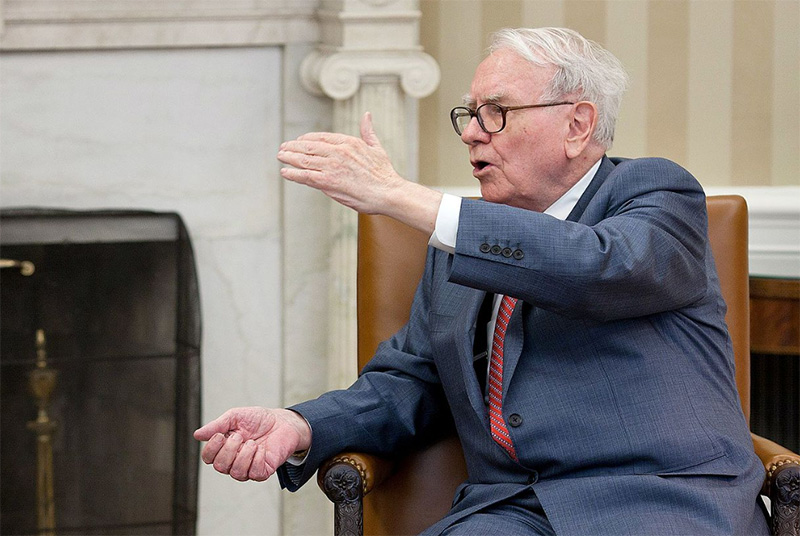
In 2012, to the surprise of his interviewer who was asking him about equities, Warren Buffett turned the conversation to residential investment property. He famously said on CNBC that single-family homes in the U.S. are “as attractive an investment as you can make”. Then, touting the unique benefits of real estate investing, Buffett said: “If I had a way of buying a couple hundred thousand single family homes and had a way of managing them…I would load up on them.”
And, sure enough, some of the most well capitalized private equity funds and other institutional investors started buying thousands of single-family rental properties. Some of them had experience in commercial real estate investing but, for many, it was the first time focusing on residential investment property, largely because, as Buffett indicated, the value proposition was so comparatively superior.,
Buffett’s comments about real estate investing were very significant and made major waves at the time primarily because they validated residential investment property as an asset class. Previously, the asset class had been widely disparaged by Wall Street (as well as by large commercial real estate investors), in some cases for self-motivated competitive reasons and in other cases for a lack of understanding of the asset class.
Beyond that important validation though, Buffett’s 2012 comments did not provide much specific advice to individuals looking to embark on a real estate investing journey. However, in his 2014 annual letter to the Berkshire Hathaway shareholders, Buffett discussed his own personal real estate investing experience, including how he bought and managed his properties, how they have performed, and what lessons should be taken from the experience.
While most everyone in the residential investment property space was excited about Warren Buffett’s very general 2012 comments, you will notice far fewer people quoting his 2014 real estate investing advice. That is because Buffett’s advice abruptly contradicts most of the advice being hawked by real estate investment “gurus” (Surprise!). That also means it is particularly important to pay attention to Buffett’s advice to understand exactly how it diverges.
In his 2014 annual letter, Warren Buffett talks about how he personally bought out-of-state rental property in 1993, how he uses professional property management to collect his rental income every month, and how, over 20 years later, he has still never seen the property and yet it has performed exceptionally well.
Buffett then goes deeper to explain how real estate investing is not a space where you can get rich quick or make quick profits. In the letter he says:
"Keep things simple and don't swing for the fences. When promised quick profits, respond with a quick ‘no’."
You are probably starting to see why the real estate infomercial "gurus" are not quoting Buffett’s real estate investing advice. In the letter, he goes on to talk about the dangers of speculating on home price appreciation. He says:
"If you instead focus on the prospective price change of a contemplated purchase, you are speculating. There is nothing improper about that. I know, however, that I am unable to speculate successfully, and I am skeptical of those who claim sustained success at doing so. Half of all coin-flippers will win their first toss; none of those winners has an expectation of profit if he continues to play the game. And the fact that a given asset has appreciated in the recent past is never a reason to buy it."
He then further emphasizes the importance of buying performing properties based on real estate fundamentals, instead of buying based on hopes of future price appreciation. He says of his own real estate investing experience:
"I thought only of what the properties would produce and cared not at all about their daily valuations. Games are won by players who focus on the playing field -- not by those whose eyes are glued to the scoreboard."
I will now summarize this wisdom into 7 lessons that I think we should take away from Warren Buffett’s advice and experience in real estate investing:
Don’t allow your lack of expertise to prevent you from buying residential investment properties, but educate yourself as much as possible, establish some real estate investing criteria that are a good fit for your personal comfort level, and then execute a meticulous due diligence regimen each time before you buy a property. Getting a good team of experienced advisors around you is a good idea too, especially if you are new to real estate investing.
We are not a tax professionals, this is not tax or legal advice, and tax laws are constantly being changed and revised and may change the day after you read this. So, this is for informational purposes only, and it is your duty to consult with your own tax professional about your individual situation and the most updated applicable laws before attempting to implement any of the content in this post.
Click on a category and see all of our educational resources available for you:
GET Access TO Private buying opportunities for TURNKEY Rental properies & EDUCATIONAL RESOURCES. READ OUR PRIVACY NOTICE & TERMS OF USE.
